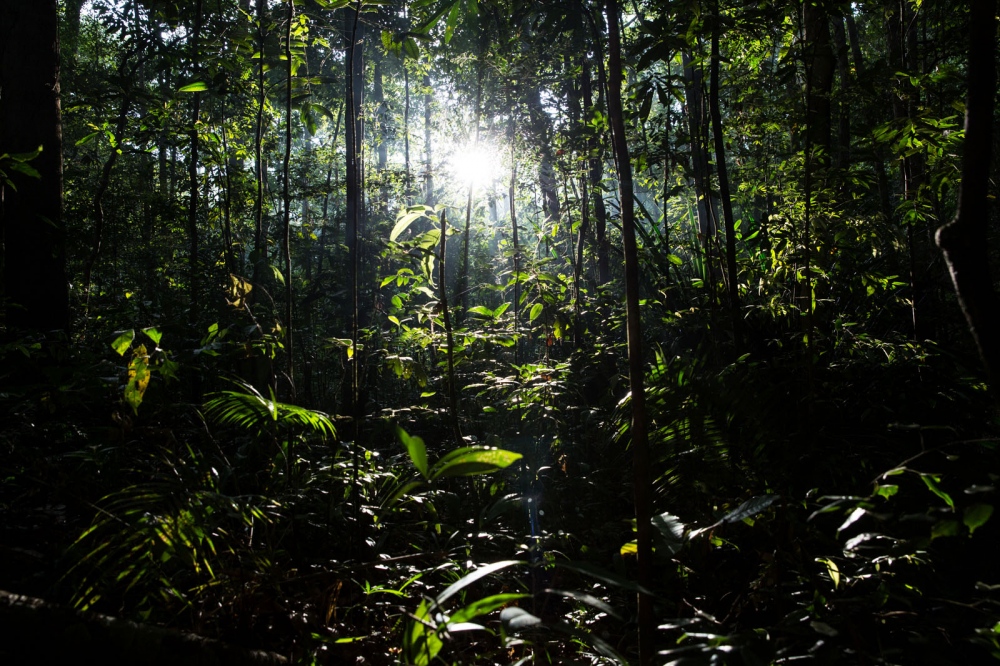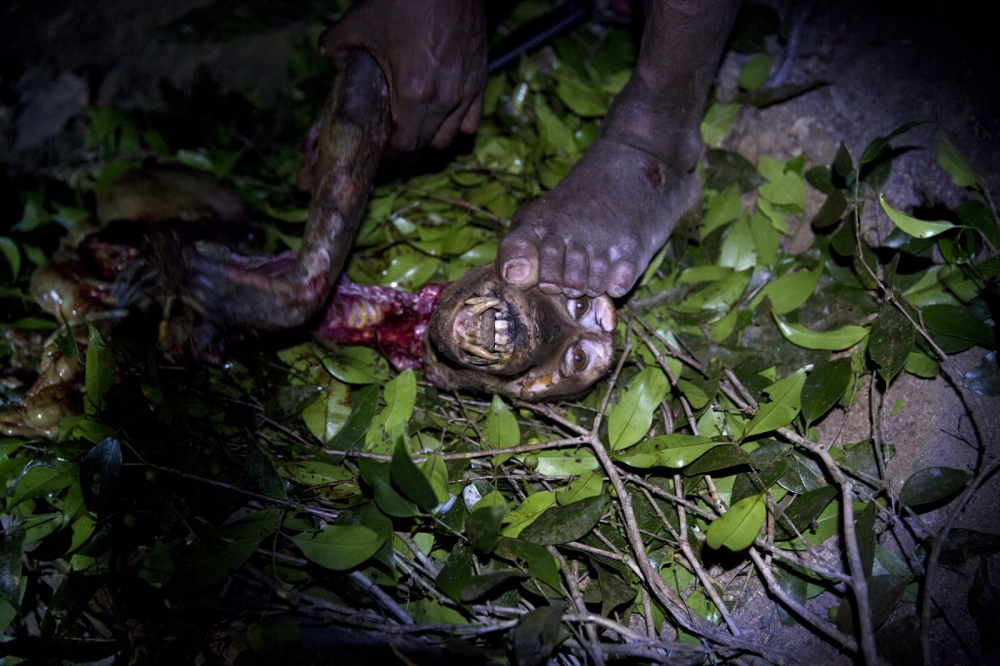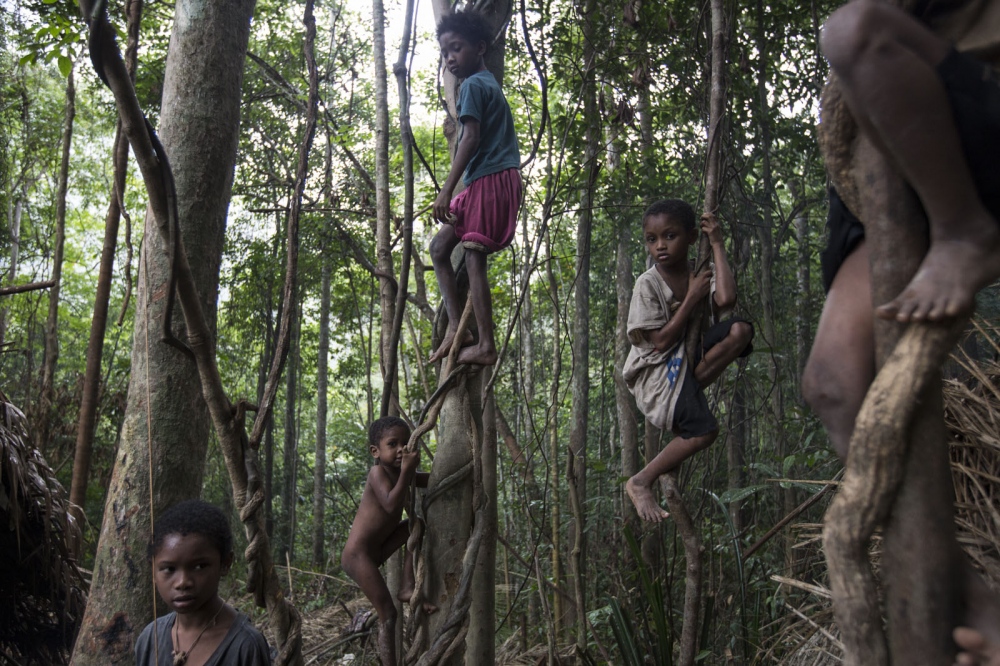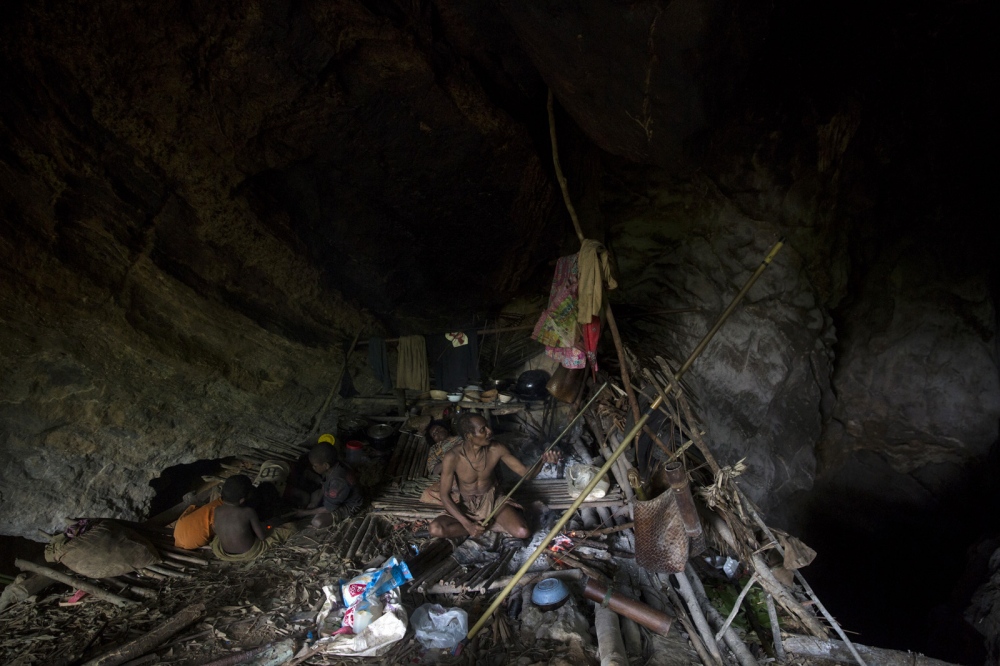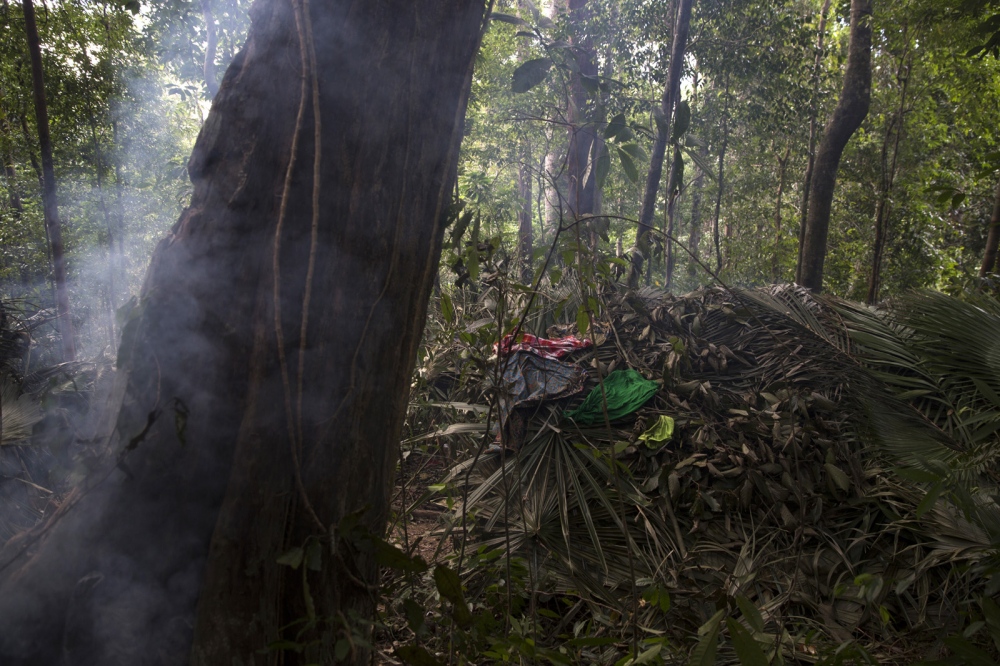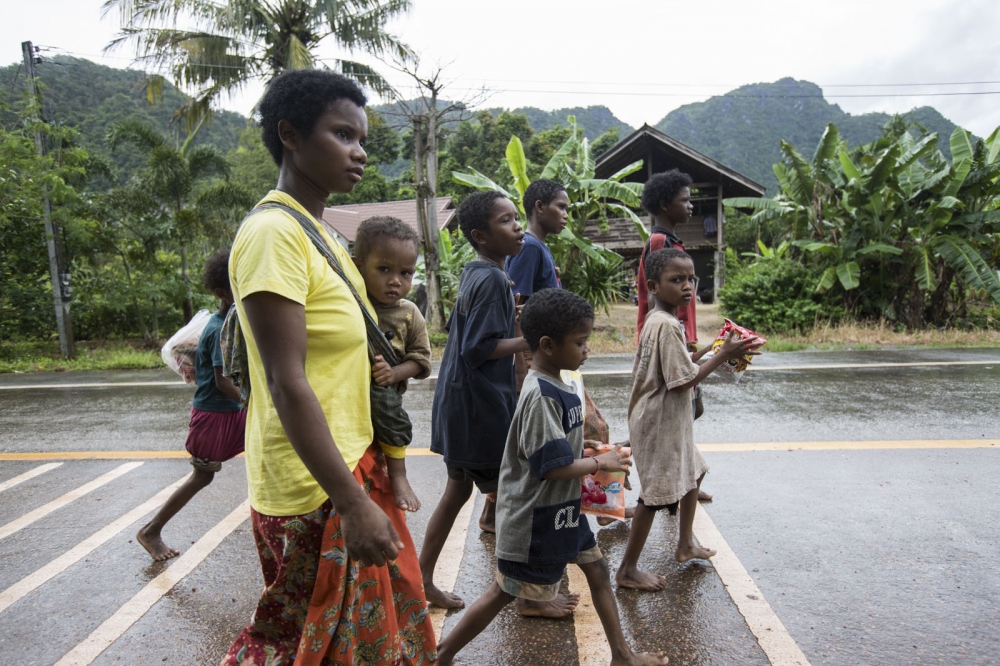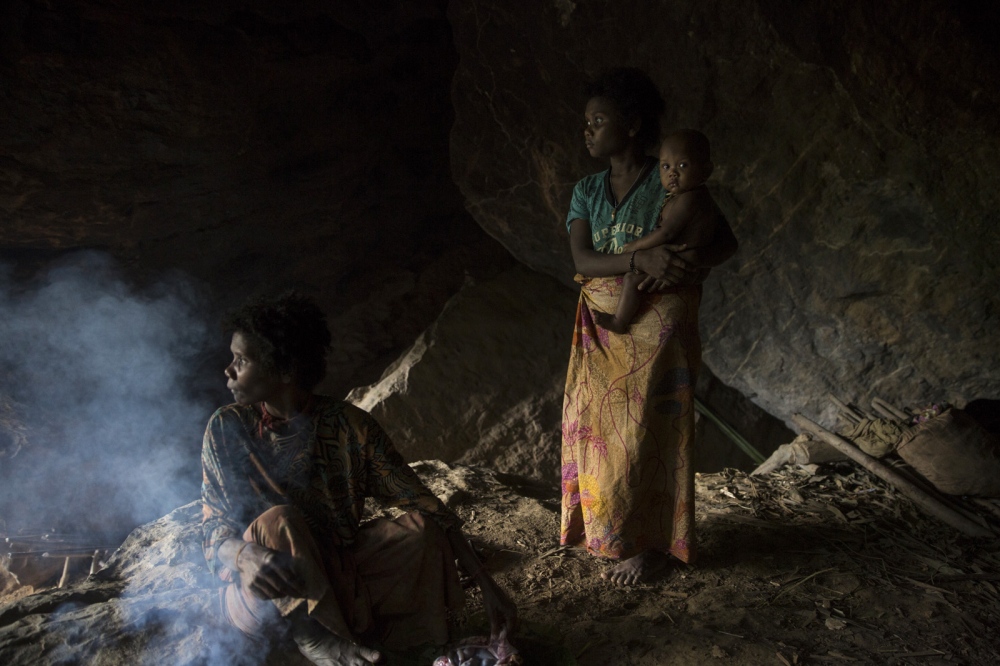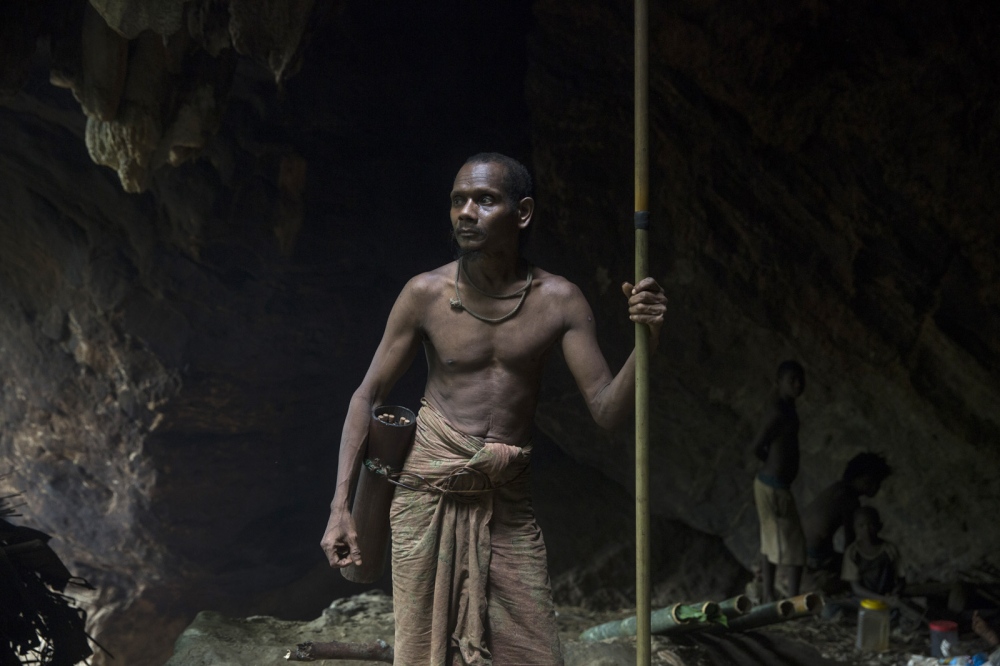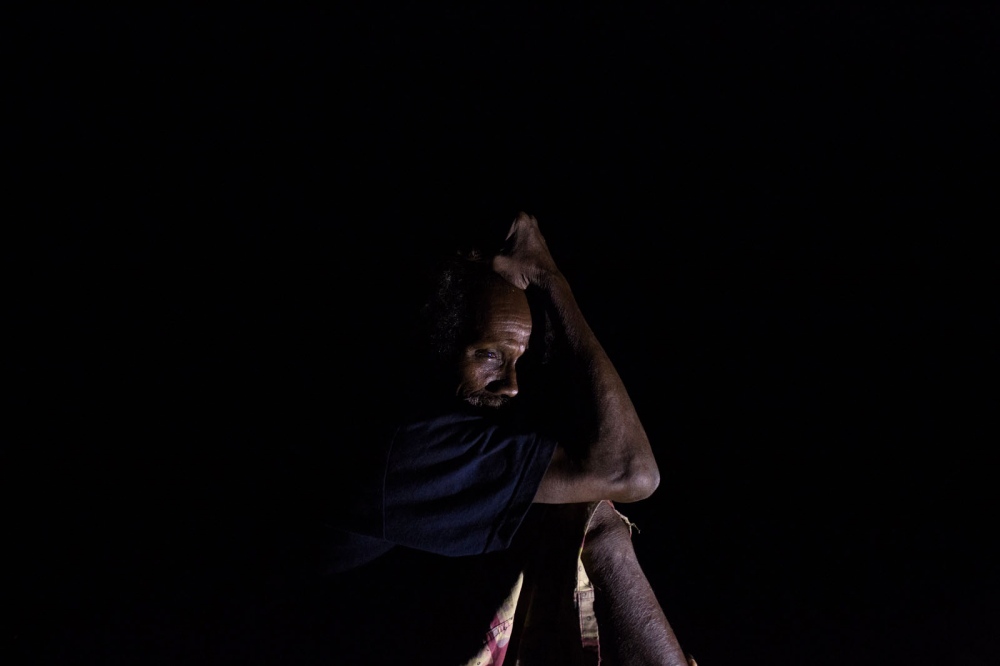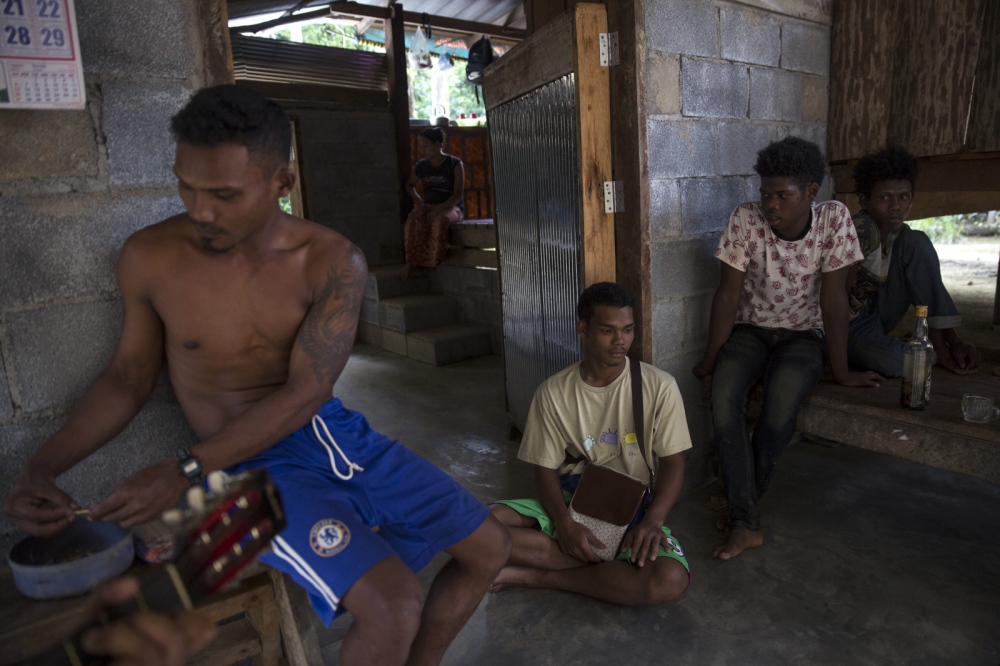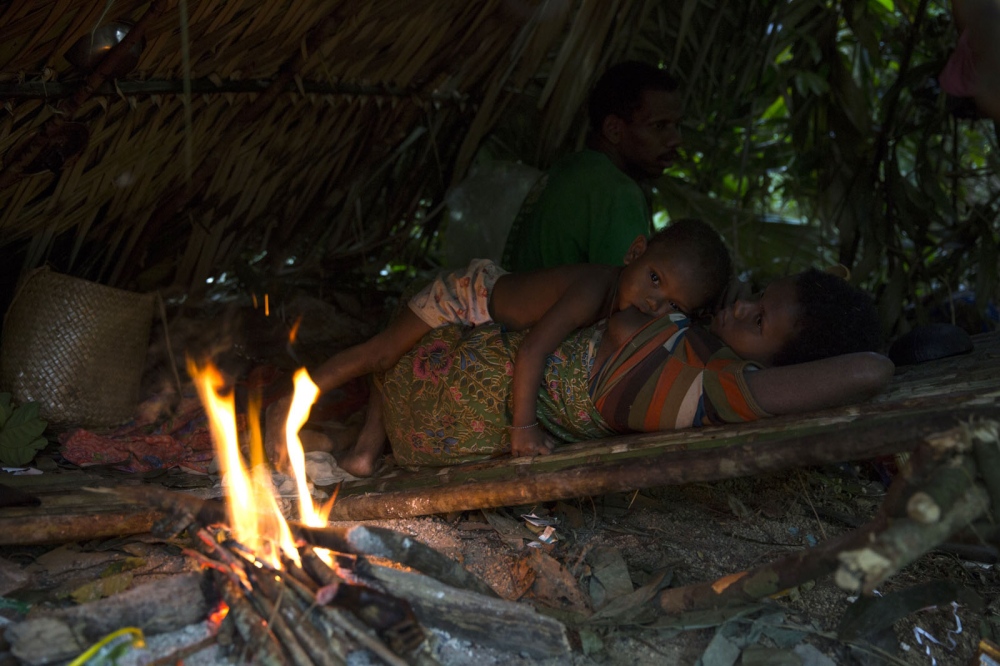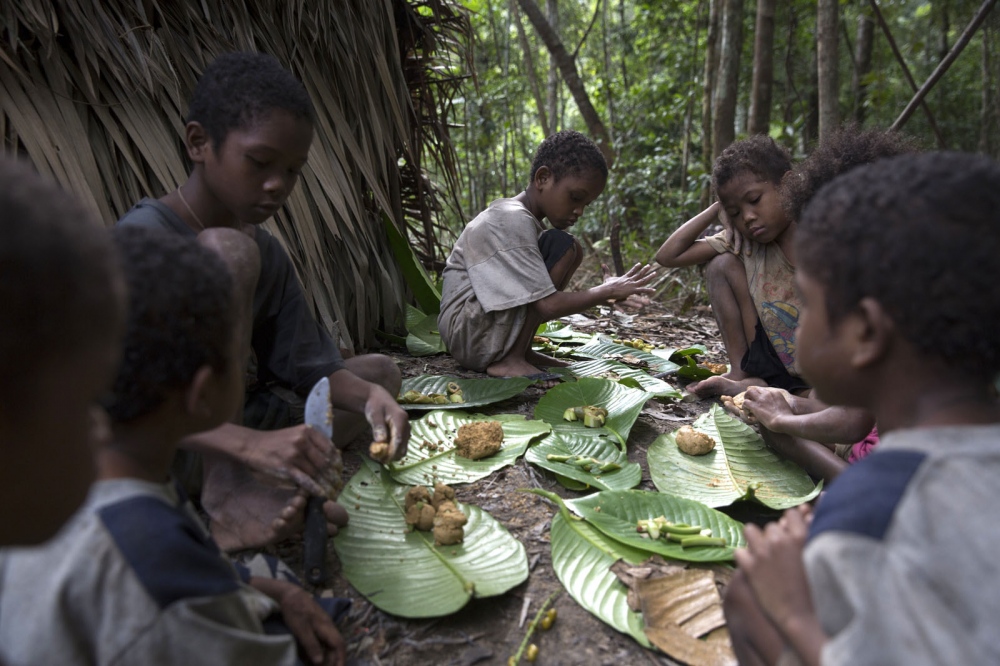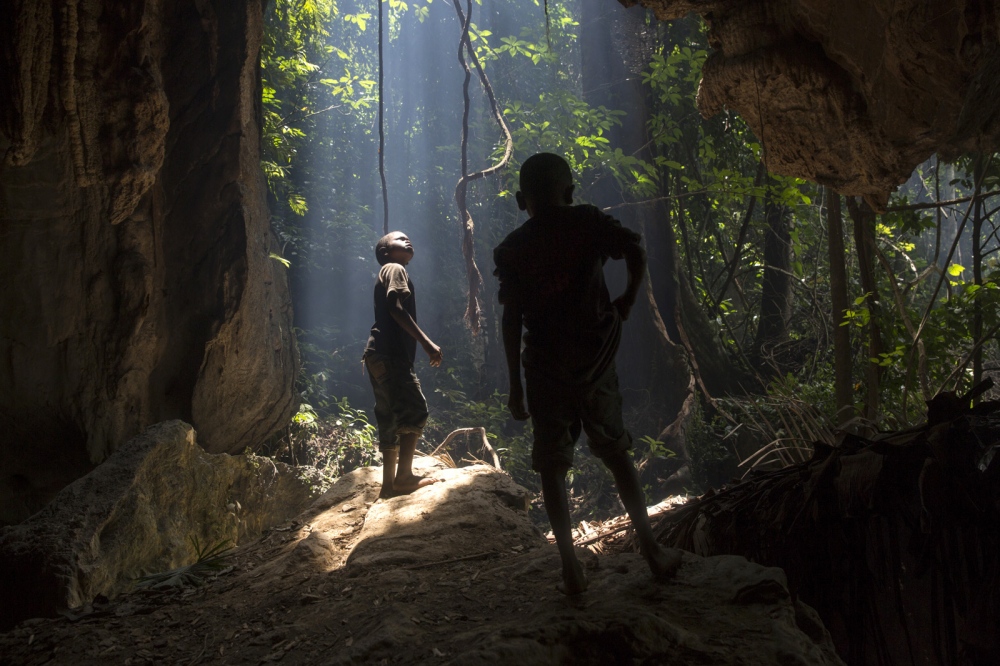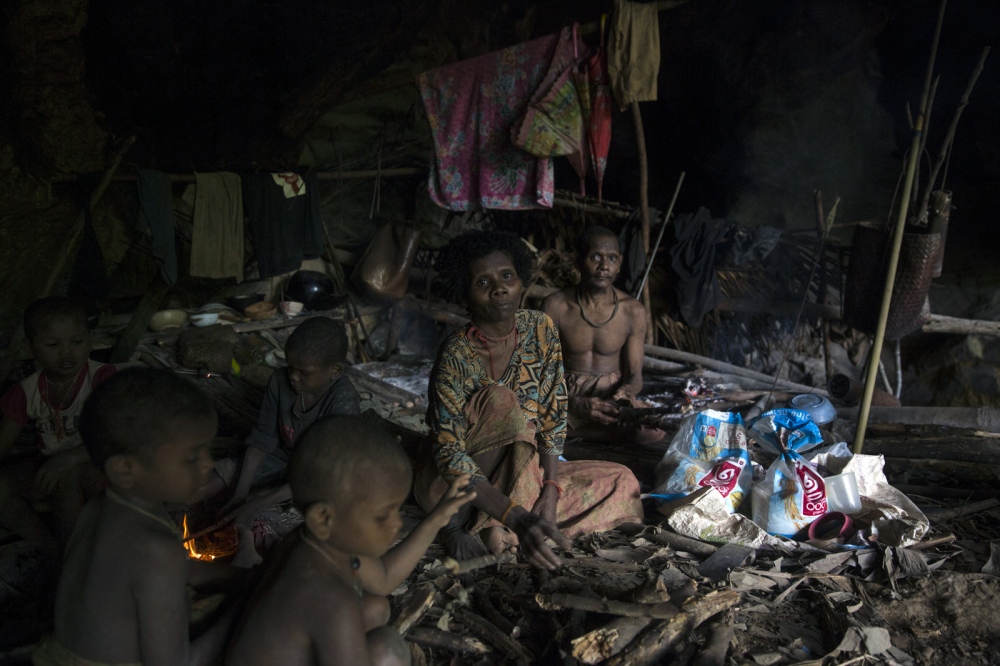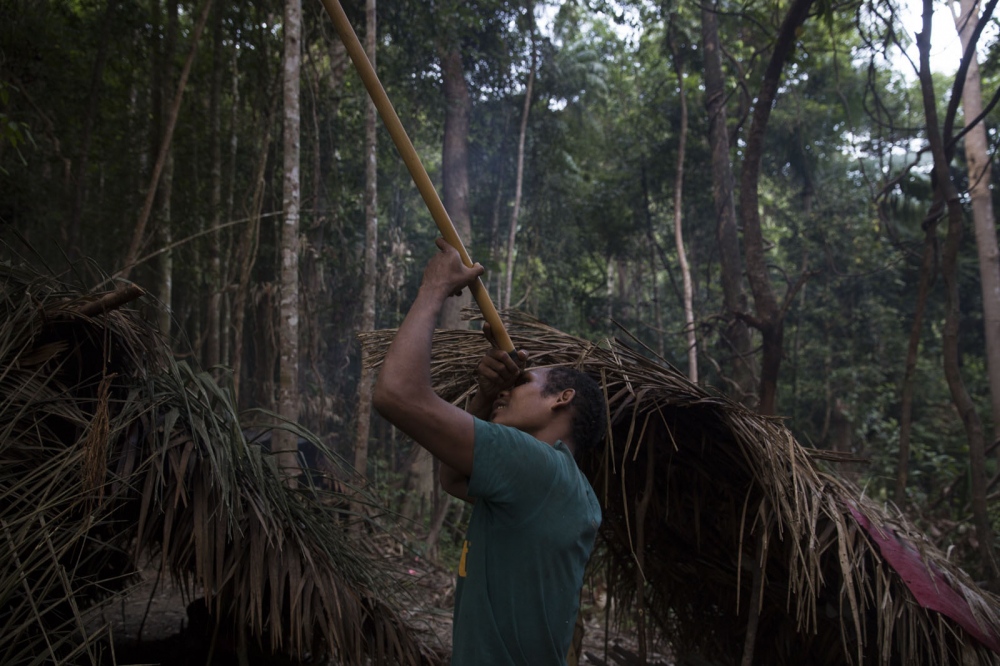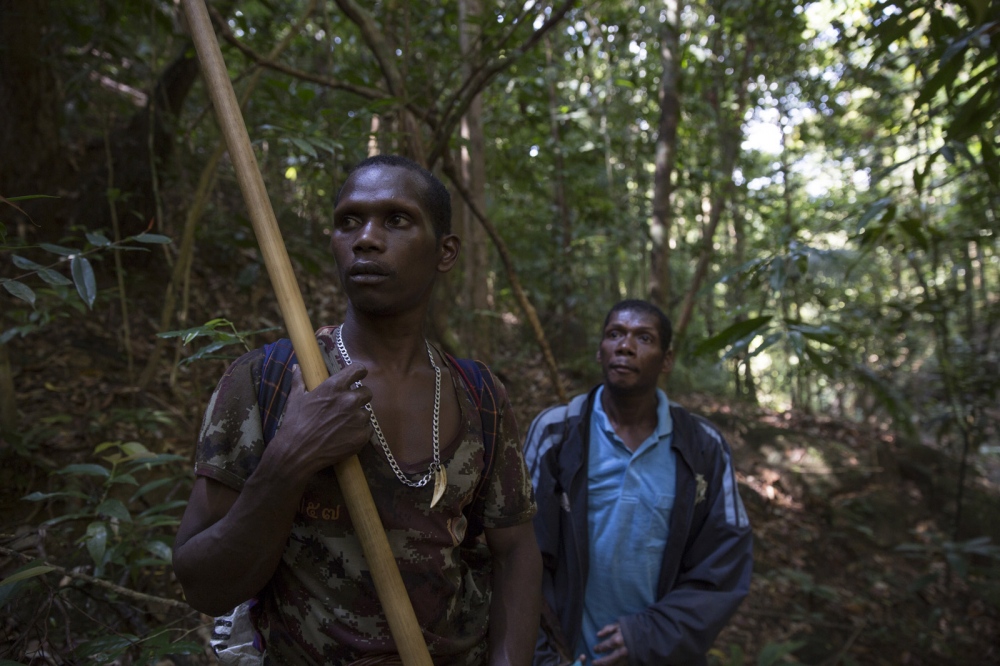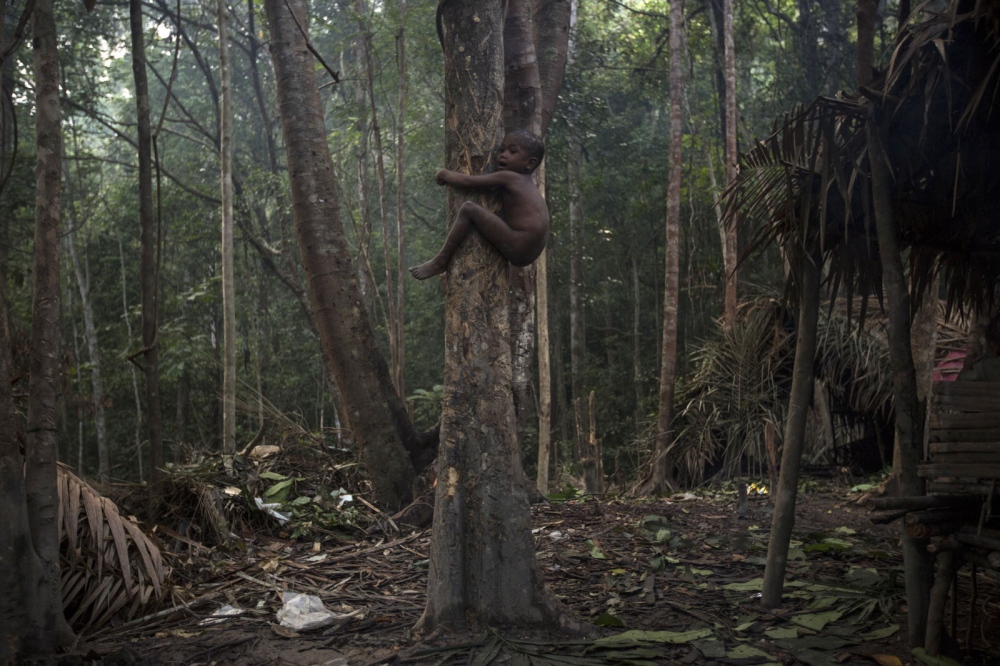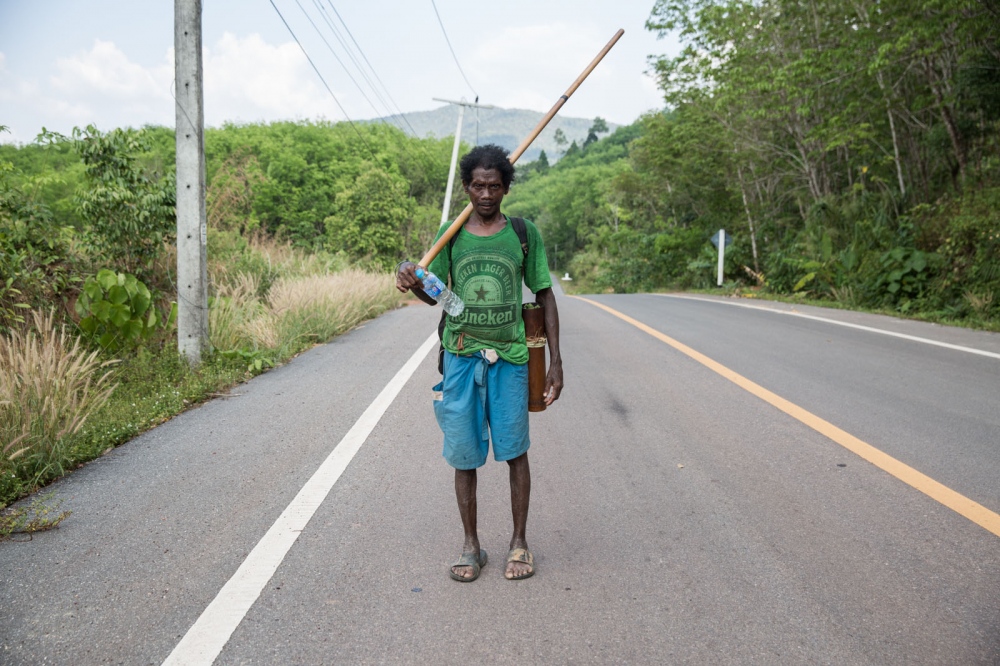Khom, 14, and Phong, 12, leave their village just after the sun has risen. For 40 minutes they walk through jungle and rubber plantations, cross a small river using a tree trunk that has fallen across it and once on the other side sit on a motorbike for another 20 minutes just to get to school.
Once there, they both join the same class, surrounded by Thai children aged 7 years old. This is the first year they have ever been to school. But Phong and Khom aren't Thai, they come from a tiny ethnic group called the Maniq.
Evidence suggests that long before the creation of the Kingdom of Thailand, as long ago as 25,000 years, negrito tribes of hunters and gatherers lived throughout the dense jungle of the Malay Peninsula in what is today Malaysia and Thailand.
The Maniq, numbering no more than 350 people, are all that remains of this indigenous tribe who still navigates the dense jungle of the Banthat mountain range. But still to this day they still hunt for animals in the forest using a blowpipe and poison arrows and sleep under shelters made of sticks and leaves. They speak their own unique language and have extensive knowledge of the medicinal benefits of the plants around them.
Divided in to around 15 extended family groups some have settled, like the family of Phong and Khom, but most continue to live a semi-nomadic lifestyle following food and water sources in the forest, moving on when they run dry.
Modern history hasn't been kind to the Maniq. Living in the deep jungle and often on the move they remained relatively untouched until the 1960's when they were forced to share the forest with Thai Communists who build remote camps to evade capture. During a decade of intense offensives by the Thai army the Maniq were often caught in the crossfire until the Communists eventually surrendered.
But with the surrender of the insurgents and returning peace, a new battle began for the ownership of the land surrounding the forested mountains. Local Thai's moved in, formed communities and began encroaching on this intact eco-system, logging trees, forming plantations and poaching wild animals.
Caught up in this scramble were the Maniq, who were now forced to compete with hunters with guns for food, watched helplessly as their forest shrank. Quiet, reclusive and misunderstood they are often incorrectly called Sakai (Malay word meaning "˜slave') or Ngo-Ba (meaning "˜rambutan of the forest') by Thai's, term's they dislike.
Outside of the Southern Thai provinces they remain relatively unknown, even to most Thai's. But if Thai's have heard of them, it is often because of a famous story that tells how King Rama V adopted a young Maniq boy called Kanang. Kanang was taken to live in the Royal Palace in Bangkok and whilst he died young, only in his twenties, the Thai King's affection for the boy was well known.
Today the Maniq sit at a crossroads. With wildlife having been severely over-hunted they are now unable to sustain themselves from the forest alone and more frequently move towards the peripheries of the forest, closer to Thai villagers, to supplement their diminishing food resources. Many see this increased accessibility to the tribe as having a negative impact on their unique way of life, indeed several groups of Maniq have decided to settle permanently and now work odd-jobs such as on rubber plantations or as labourers.
Stories are rife about how they have been taken advantage of. The worst being when a town official in Satun Province forced a group of them sit under an imitation shelter made of sticks in a shopping centre so people could take their pictures. Something the official was later forced to apologise for.
With all but the remotest dwelling of groups now being forced to the edges of the forest it seems that the Maniq's ability to withdraw completely from Thai society as they have done for millennia is becoming harder to do.

